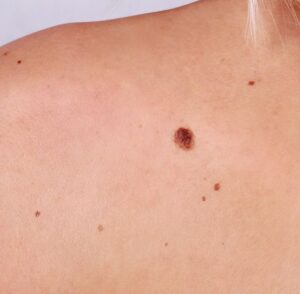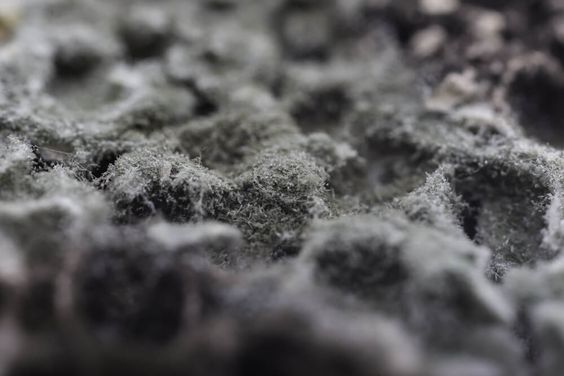Can Black Mold Cause Cancer: Health effects of black mold
Black mold, scientifically known as Stachybotrys chartarum, has been a subject of concern due to its potential health effects. While it is not directly linked to causing cancer, exposure to black mold can lead to a range of health issues, particularly respiratory problems and other symptoms. These health issues can vary in severity depending on the individual’s sensitivity, the extent of exposure, and their overall health. Read about Do Hickeys Cause Cancer
Understanding Black Mold

Black mold, scientifically known as Stachybotrys chartarum, is a type of mold that belongs to the fungal family. It thrives in areas with high humidity levels and is known for its dark, slimy appearance. Black mold releases spores into the air, which can be inhaled or come into contact with the skinDiscover about Is Cancer a Fungus
Health Effects of Black Mold: Can Black Mold Cause Cancer
Exposure to black mold can cause symptoms such as:
- Respiratory problems: Inhalation of mold spores or mycotoxins produced by black mold can irritate the respiratory system, leading to symptoms like coughing, wheezing, throat irritation, and nasal congestion.
- Allergic reactions: Some people may develop allergic reactions to mold, which can manifest as skin rashes, itchy eyes, sneezing, and other allergy-like symptoms.
- Asthma exacerbation: Individuals with asthma may experience worsened symptoms when exposed to black mold. Mold can trigger asthma attacks or make asthma symptoms more severe.
- Respiratory infections: Prolonged exposure to mold can weaken the immune system’s defenses, potentially increasing susceptibility to respiratory infections.
Also, read the Article: Do Takis Cause Cancer
Black Mold Toxicity
Black mold toxicity is a concern for many homeowners and tenants. The toxic compounds produced by black mold, known as mycotoxins, can have significant health impacts. These mycotoxins can be harmful when inhaled, ingested, or come into contact with the skin. Understanding the severity and breadth of these health risks is essential for mitigating exposure and safeguarding health.
Mold Exposure and Cancer Risk
Mold exposure and cancer risk is a topic of ongoing scientific investigation. While black mold exposure is not directly associated with causing cancer, it is essential to address and remediate any mold issues in your living environment to protect your health. Prolonged exposure to mold can lead to chronic health problems, and it’s particularly important for individuals with respiratory conditions or compromised immune systems to take precautions and seek professional help for mold removal if necessary.
The Connection Between Black Mold and Cancer
Studies and Research
Several studies have examined the potential link between black mold and cancer. While there is no conclusive evidence to suggest a direct causative relationship, some findings are worth noting:
- Respiratory Cancer: Some studies have suggested that long-term exposure to mycotoxins produced by black mold may increase the risk of respiratory cancers, such as lung cancer. However, more research is needed to establish a definitive link.
- Immune System Suppression: Black mold exposure can weaken the immune system, making individuals more susceptible to various diseases, including cancer. A compromised immune system may struggle to fend off cancerous cells effectively.
Mycotoxins and Cancer: Can Black Mold Cause Cancer
Mycotoxins and cancer are closely studied in the context of black mold. Mycotoxins are toxic compounds produced by certain types of mold, including black mold. They can have various adverse effects on human health, and understanding their role in potentially causing cancer is a critical area of research.
Black Mold Health Risks
Black mold exposure has been linked to various health problems, including respiratory issues, allergies, and skin irritation. However, the question of whether it can cause cancer remains a subject of scientific investigation.
Black Mold Symptoms
Black mold symptoms can vary depending on the individual’s sensitivity, the extent of exposure, and their overall health. Common symptoms of black mold exposure include:
- Coughing
- Wheezing
- Throat irritation
- Nasal congestion
- Skin rashes
- Itchy eyes
- Sneezing
Cancer from Mold Exposure
While there is ongoing research into the potential health risks of black mold exposure, there is currently no definitive evidence to suggest that black mold directly causes cancer in humans. However, it is crucial to take precautions and address any mold issues in your home promptly to protect your health.
Mold-Related Illnesses
Mold-related illnesses encompass a wide range of health issues that can arise from exposure to mold. These illnesses can affect various parts of the body, including the respiratory system, skin, and immune system. Understanding these illnesses can help in identifying and addressing mold exposure early.
Black Mold and Lung Cancer
Black mold and lung cancer is a specific area of concern for researchers. Some studies suggest a potential link between prolonged exposure to black mold and an increased risk of lung cancer. However, more research is needed to establish a definitive connection.
Toxic Mold and Health
Toxic mold and health are closely interconnected. Toxic molds, such as black mold, produce harmful mycotoxins that can have significant health impacts. Understanding the health effects of toxic mold is essential for preventing and mitigating exposure.
Black Mold in Homes: Can Black Mold Cause Cancer
Black mold in homes is a common issue, especially in areas with high humidity levels. Mold can grow on various surfaces, including walls, ceilings, and floors. It is crucial to address mold issues promptly to prevent health risks.
Mold Spores and Cancer
Mold spores and cancer are a topic of interest in the scientific community. While mold spores themselves are not known to cause cancer, the mycotoxins they produce can have harmful health effects. Research is ongoing to understand the potential link between mold spores and cancer.
Black Mold Exposure
Black mold exposure can occur through inhalation, ingestion, or skin contact. Understanding the routes of exposure is essential for preventing health risks and mitigating the effects of black mold.
Long-Term Effects of Black Mold
Long-term effects of black mold exposure can include chronic respiratory issues, weakened immune system, and increased susceptibility to infections. Understanding these long-term effects is crucial for addressing and preventing mold-related health risks.
Mold-Induced Diseases
Mold-induced diseases are health conditions that arise from exposure to mold. These diseases can affect various parts of the body, including the respiratory system, skin, and immune system. Identifying and addressing mold-induced diseases early is essential for preventing long-term health issues.
Mycotoxin Exposure and Cancer
Mycotoxin exposure and cancer are closely studied in the context of black mold. Mycotoxins are toxic compounds produced by certain types of mold, including black mold. They can have various adverse effects on human health, and understanding their role in potentially causing cancer is a critical area of research.
Preventing Mold-Related Cancer
Preventing mold-related cancer involves addressing and mitigating mold exposure in the home. This includes maintaining proper ventilation, addressing water leaks promptly, and using dehumidifiers to reduce humidity levels. Taking these preventive measures can help reduce the risk of mold-related health issues.
Health Impact of Mold: Can Black Mold Cause Cancer

Health impact of mold is significant, especially for individuals with pre-existing health conditions. Mold exposure can cause a wide range of health issues, from respiratory problems to skin irritation. Understanding the health impact of mold is crucial for addressing and preventing mold-related health risks.
Mold in Buildings and Health Risks
Mold in buildings and health risks are a concern for many homeowners and tenants. Mold can grow in various areas of a building, including walls, ceilings, and floors. Addressing mold issues promptly is essential for preventing health risks.
Cancer-Causing Mold
Cancer-causing mold is a topic of ongoing scientific investigation. While there is no conclusive evidence linking mold exposure to cancer, understanding the potential health risks of mold exposure is essential for preventing and mitigating these risks.
Preventive Measures: Can Black Mold Cause Cancer
To reduce the risks associated with black mold, consider the following preventive measures:
- Maintain Proper Ventilation: Ensure good airflow in your home to prevent moisture buildup.
- Address Water Leaks: Promptly repair any leaks or water damage to prevent mold growth.
- Regular Cleaning: Regularly clean and inspect areas prone to mold growth, such as bathrooms and basements.
- Use Dehumidifiers: Dehumidifiers can help reduce humidity levels in your home, making it less conducive to mold growth.
How to Get Your Home Tested for Mold
Tests to identify mold can only show that mold spores were present at a particular moment. They can’t tell you when you may have been exposed, if you inhaled any mold spores, or what your health risks might be.
Large areas of mold are easy to see, and sometimes to smell, so testing isn’t generally necessary. Also, all mold is cleaned the same way, so it doesn’t matter what type it is.
The CDC does not recommend routine sampling for molds. The agency states that reliable sampling can be expensive and there are no established standards for judging acceptable levels of mold.
If you do want to get your home tested for mold or need professional mold removal, there are a few places to find a certified mold inspector in the United States:
- American Council for Accredited Certification: Find a Council-certified Mold Inspector
- National Association of Mold Remediators & Inspectors: Find a NAMRI Mold Professional
- National Organization of Remediators and Mold Inspector: NORMI Professional Directory
How to Get Rid of Mold in Your Home
Mold should be removed as quickly as possible. To clean mold off hard surfaces, such as tile, scrub with soap and water, commercial products, or use bleach. To make a bleach solution, mix 1 cup of bleach to 1 gallon of water. When cleaning with bleach, be sure to protect your skin and eyes, and allow for plenty of ventilation.
You may not be able to save porous or absorbent materials such as drywall, ceiling tiles, and carpeting. Once they’ve become soaked or are growing mold, they generally need to be removed and replaced.
For big mold problems, consider hiring a professional cleaning company experienced in removing mold. If it’s not completely cleaned, it can start growing again. For that reason, it’s important to fix the source of the problem as well.
If your home has a lot of mold and you have health concerns, ask your doctor if you should stay away until the situation is remedied.
Tips for Preventing Mold in Your Home
Mold can get into your house through doors and windows. It can enter through air-conditioning, heating, and ventilation systems. It can even hitch a ride on you, your pets, or anything you carry in from outside. Read on for tips on how to prevent mold from taking hold in your home:
- Keep Humidity Levels Low: Use dehumidifiers and air conditioners to maintain indoor humidity levels below 50%.
- Fix Leaks Promptly: Repair any leaks in your roof, walls, or plumbing to prevent moisture buildup.
- Ensure Proper Ventilation: Use exhaust fans in bathrooms and kitchens to improve ventilation.
- Clean and Dry Damp Areas: Regularly clean and dry areas that are prone to moisture, such as bathrooms and basements.
- Use Mold-Resistant Products: When renovating or building, consider using mold-resistant drywall and paint.
By implementing these preventive measures, you can reduce the risk of mold growth in your home and protect your health from the potential hazards of mold exposure.
Conclusion: Can Black Mold Cause Cancer
While there is no conclusive evidence linking black mold exposure to cancer, it is essential to address any mold issues in your home promptly. Black mold can cause a range of health problems, particularly for individuals with respiratory conditions or weakened immune systems. By understanding the risks associated with black mold and taking preventive measures, you can protect your health and maintain a safe living environment.
Regular cleaning, proper ventilation, and prompt repairs can help prevent mold growth and reduce the risk of mold-related health issues. If you suspect a significant mold problem in your home, consider consulting a professional mold inspector or remediation specialist to ensure the issue is addressed effectively.
FAQs
Q. Is black mold always toxic?
A. Not all black molds are toxic, but Stachybotrys chartarum, commonly referred to as black mold, can produce mycotoxins that are harmful to health.
Q. What are the symptoms of black mold exposure?
A. Symptoms may include respiratory issues, allergies, skin irritation, headaches, and fatigue.
Q. Can black mold be safely removed by homeowners?
A. Small mold infestations can often be handled by homeowners, but extensive infestations should be addressed by professionals.
Q. How can I test for black mold in my home?
A. You can purchase mold testing kits or hire professionals to conduct mold inspections.
Q. What should I do if I suspect black mold in my home?
A. If you suspect black mold, it’s essential to address the issue promptly by identifying and eliminating the source of moisture and removing the mold safely.








